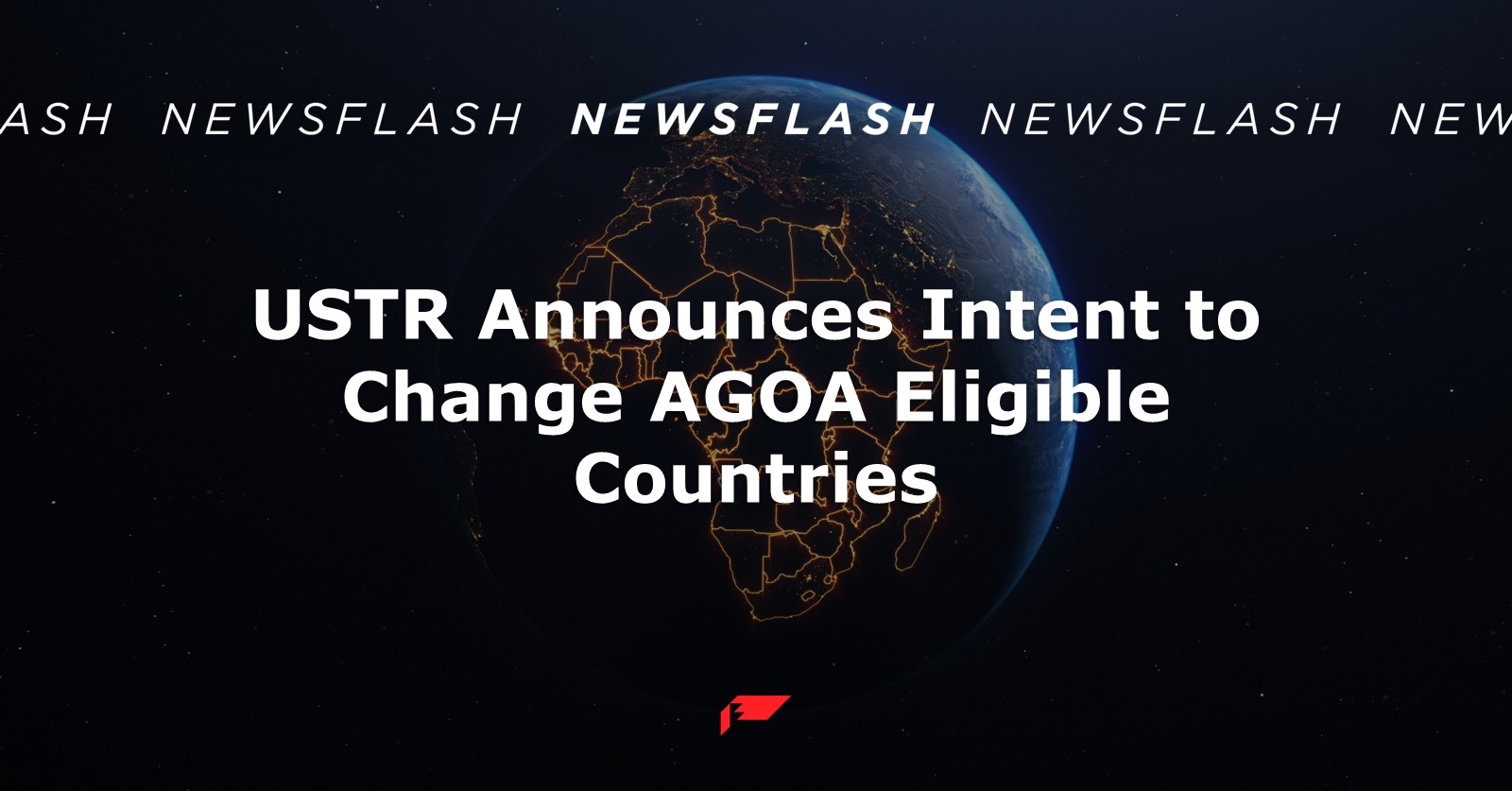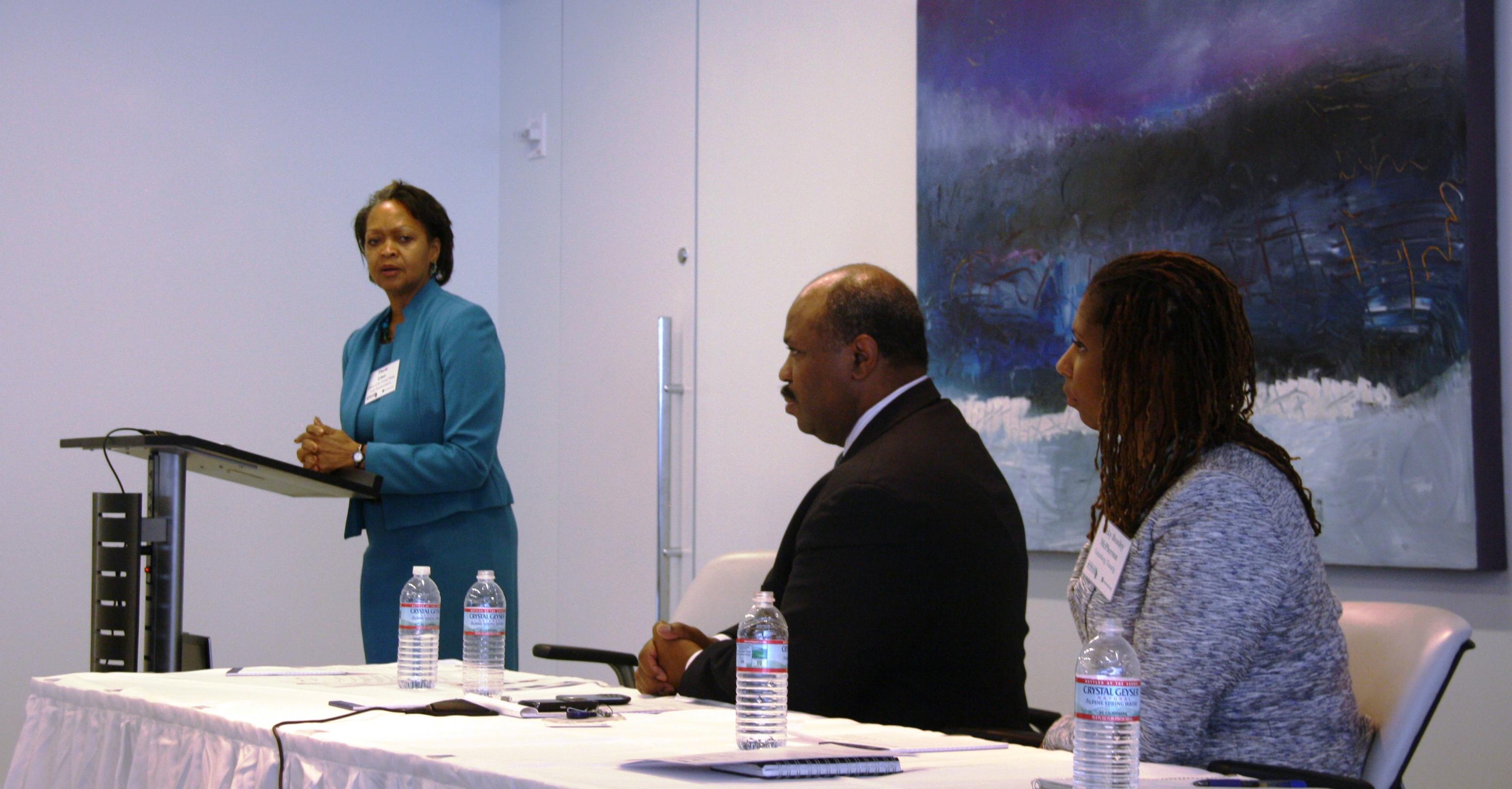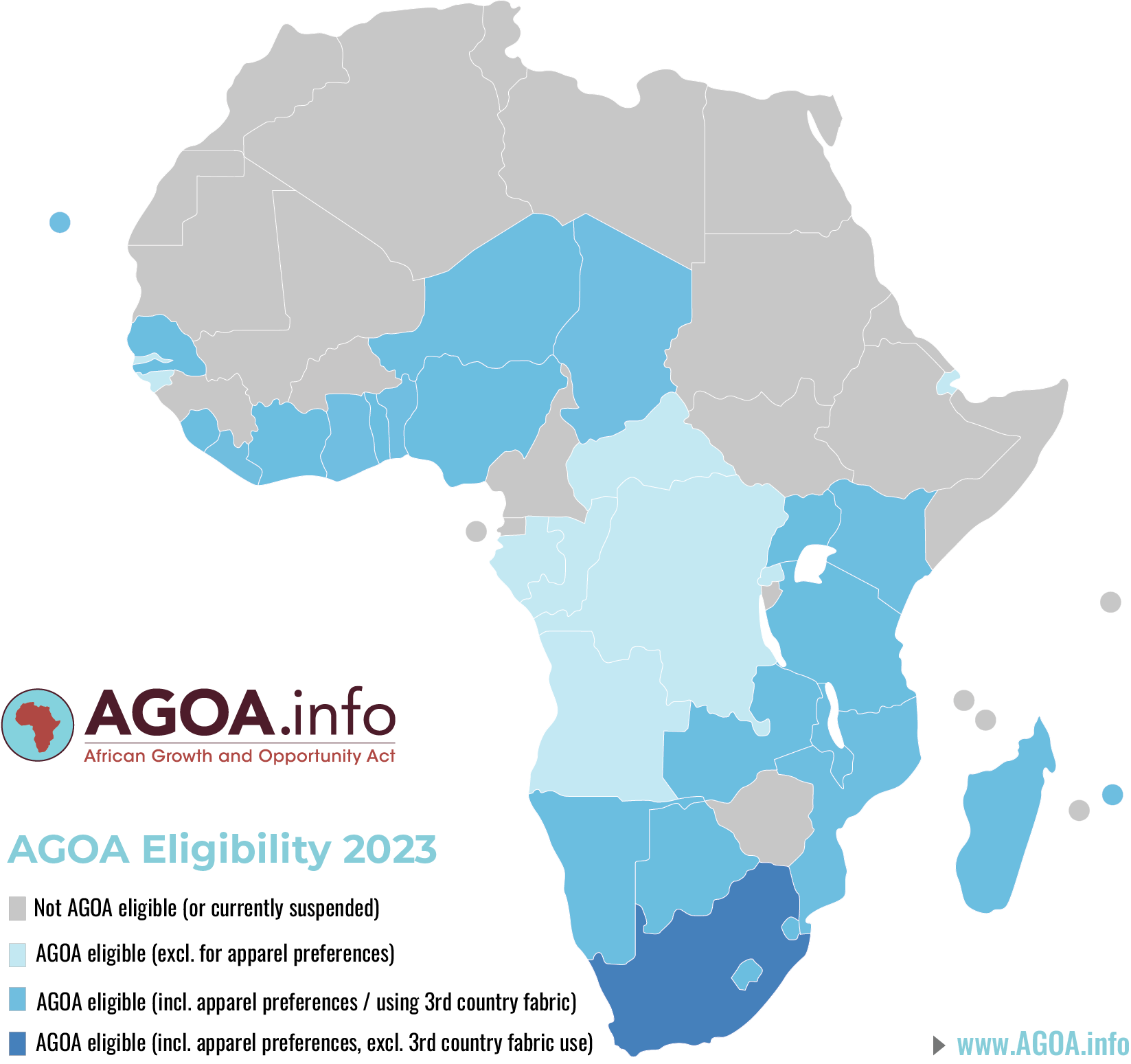US TR AGOA 2025 Eligibility Hearing: A Closer Look At The Future Of Trade
Hey there, trade enthusiasts and global economy watchers! If you’ve been following the buzz around international trade policies, you’ve probably heard about the US TR AGOA 2025 eligibility hearing. But what’s all the hype about? Why does it matter? And how could it impact not just businesses but everyday people like you and me? Let’s dive into this topic and break it down step by step, so you can fully grasp the significance of this crucial event. Trust me, by the end of this article, you’ll feel like a trade policy pro!
This hearing isn’t just another bureaucratic meeting—it’s a chance for countries in Sub-Saharan Africa to showcase their progress and secure continued access to one of the most significant trade benefits available. The African Growth and Opportunity Act (AGOA) has been a game-changer for many African nations, and its eligibility hinges on specific criteria that are currently under scrutiny. So, buckle up, because we’re about to unpack everything you need to know.
Before we get into the nitty-gritty, let’s set the stage. The US TR AGOA 2025 eligibility hearing is essentially a review process where the US government evaluates whether participating countries meet the requirements to maintain their AGOA status. It’s like a report card for nations, and the stakes are high. This article will take you through the ins and outs of this process, including its history, key players, and potential outcomes. Ready? Let’s go!
Read also:Brenda Richie The Woman Behind The Scenes
What is AGOA and Why Does It Matter?
AGOA, or the African Growth and Opportunity Act, is a landmark piece of legislation passed by the US in 2000. It’s essentially a trade agreement that gives certain African countries preferential access to the US market. This means they can export thousands of products to the US without paying tariffs, which is a huge advantage. Think about it—this opens doors for African businesses to compete globally and boosts their economies significantly.
But here’s the catch: not every African country gets to enjoy these benefits. To qualify, countries must meet specific eligibility criteria, including promoting rule of law, protecting human rights, and working towards eliminating barriers to US trade. It’s like a trade agreement with a conscience, aiming to promote sustainable development and fair practices.
Key Benefits of AGOA for Participating Countries
- Exemption from tariffs on thousands of products, making exports more competitive.
- Increased market access to the world’s largest economy, the USA.
- Encouragement of economic diversification and industrialization in African nations.
- Support for regional integration and cooperation among African countries.
For many African nations, AGOA isn’t just a trade agreement—it’s a lifeline. It provides opportunities for growth, job creation, and poverty reduction. However, maintaining eligibility isn’t a walk in the park. Countries must continually demonstrate their commitment to the principles outlined in the agreement, which brings us to the 2025 eligibility hearing.
Understanding the 2025 Eligibility Hearing
The US TR AGOA 2025 eligibility hearing is a critical moment for participating countries. It’s essentially a review process where the US evaluates whether these nations still meet the criteria to benefit from AGOA. Think of it as a performance review for countries, where they must prove they’re walking the talk when it comes to economic reforms, human rights, and trade practices.
This hearing is important because AGOA isn’t a permanent agreement. It’s subject to periodic reviews, and countries can lose their eligibility if they fail to meet the requirements. For some nations, this could mean losing access to a vital market and facing significant economic challenges. On the flip side, countries that pass the review could see increased investment, trade opportunities, and economic growth.
Who Are the Key Players in This Process?
- US Trade Representatives (USTR): They lead the review process and make recommendations to the President on eligibility.
- African Governments: They must present evidence of their compliance with AGOA criteria.
- NGOs and Civil Society: These groups often provide input on human rights and governance issues.
- US Businesses and Stakeholders: They weigh in on the benefits of AGOA for the US economy.
It’s a collaborative effort, but the stakes are high, and the outcomes could shape the future of trade relations between the US and Africa.
Read also:Boise Arrest Report Your Ultimate Guide To Stay Informed
Eligibility Criteria: What Do Countries Need to Prove?
Now, let’s talk about the nitty-gritty. To remain eligible for AGOA, countries must meet several key criteria. These include:
- Establishing a market-based economy.
- Protecting human rights and labor rights.
- Promoting rule of law and combating corruption.
- Working towards eliminating barriers to US trade.
These criteria aren’t just checkboxes; they’re principles that countries must actively work to uphold. The review process involves gathering evidence, analyzing data, and sometimes even visiting countries to assess their progress. It’s a thorough examination, and the results can have far-reaching implications.
Challenges Faced by Participating Countries
While AGOA has been a boon for many African nations, maintaining eligibility isn’t always easy. Some countries face challenges such as:
- Political instability and governance issues.
- Economic difficulties that hinder reform efforts.
- Resistance to change from vested interests within the country.
Despite these hurdles, many countries are committed to meeting the criteria and securing their AGOA status. It’s a testament to their determination to improve their economies and create better futures for their citizens.
Impact of AGOA on African Economies
So, what’s the big deal about AGOA? Well, the impact has been significant. Since its inception, AGOA has helped African countries increase their exports to the US, diversify their economies, and create jobs. For example, countries like South Africa, Nigeria, and Kenya have seen substantial growth in sectors like textiles, agriculture, and manufacturing.
But it’s not just about numbers. AGOA has also encouraged African nations to adopt better governance practices, protect human rights, and foster economic partnerships. It’s a win-win for both the US and Africa, promoting mutual prosperity and stability.
Success Stories from AGOA
- Lesotho: The country’s textile industry flourished under AGOA, creating thousands of jobs.
- Ghana: AGOA helped boost Ghana’s agricultural exports, including cocoa and shea butter.
- Botswana: The diamond industry benefited significantly from preferential access to the US market.
These success stories highlight the potential of AGOA to transform economies and improve lives. However, the 2025 eligibility hearing could determine whether these gains continue or are put at risk.
US Perspectives: Why Does AGOA Matter for America?
It’s not just about Africa; AGOA also benefits the US. By promoting trade with African nations, the US creates opportunities for American businesses, increases exports, and strengthens diplomatic ties. AGOA helps diversify the global supply chain, making it more resilient and sustainable.
Moreover, AGOA aligns with the US’s broader goals of promoting democracy, human rights, and economic development globally. It’s a strategic move that supports US interests while fostering partnerships with African nations.
Challenges and Criticisms
Of course, no policy is without its critics. Some argue that AGOA doesn’t do enough to address structural issues in African economies or that it favors certain countries over others. Others point out that the benefits aren’t evenly distributed across all participating nations.
Despite these criticisms, AGOA remains a valuable tool for promoting economic growth and cooperation. The 2025 eligibility hearing provides an opportunity to address these concerns and ensure the agreement continues to deliver results.
Data and Statistics: AGOA by the Numbers
Let’s look at some numbers to understand the scale of AGOA’s impact:
- Over $1 trillion in exports from AGOA-eligible countries to the US since 2000.
- More than 40 African countries eligible for AGOA benefits.
- Thousands of jobs created in both Africa and the US due to increased trade.
These figures underscore the importance of AGOA and why the 2025 eligibility hearing is so critical. The data shows that AGOA works, but maintaining its success requires ongoing commitment from all parties involved.
Sources of Data
Data for this article comes from reputable sources such as the US Trade Representative’s Office, the World Bank, and the International Monetary Fund. These organizations provide reliable information on trade trends, economic indicators, and policy impacts.
Future Prospects: What Lies Ahead?
As we look ahead to the US TR AGOA 2025 eligibility hearing, several questions come to mind. Will countries meet the criteria? What changes might be introduced to strengthen AGOA? And how will the global economic landscape influence these decisions?
One thing is certain: the outcome of this hearing will shape the future of US-Africa trade relations. It’s a pivotal moment that could lead to new opportunities or challenges for both parties. The key will be ensuring that AGOA continues to deliver benefits for all stakeholders involved.
Potential Outcomes
- Continued Eligibility: Countries that meet the criteria will retain their AGOA status.
- Suspension or Termination: Countries that fail to comply could lose their benefits.
- Reforms and Adjustments: The US might introduce new requirements or incentives to enhance AGOA’s effectiveness.
Whatever the outcome, the 2025 eligibility hearing will be a defining moment for AGOA and its participants.
Conclusion: What You Can Do
There you have it—a comprehensive look at the US TR AGOA 2025 eligibility hearing. Whether you’re a business owner, policymaker, or simply someone interested in global trade, understanding AGOA and its implications is crucial. This agreement has the power to transform economies, create jobs, and foster partnerships that benefit everyone involved.
So, what’s next? If you’re passionate about trade policy, consider sharing this article with others who might find it valuable. Leave a comment below with your thoughts on AGOA and its future. And don’t forget to explore other articles on our site for more insights into global trade and economics. Together, we can stay informed and make a difference in shaping the future of trade!
Table of Contents
- What is AGOA and Why Does It Matter?
- Understanding the 2025 Eligibility Hearing
- Eligibility Criteria: What Do Countries Need to Prove?
- Impact of AGOA on African Economies
- US Perspectives: Why Does AGOA Matter for America?
- Data and Statistics: AGOA by the Numbers
- Future Prospects: What Lies Ahead?
- Conclusion: What You Can Do


